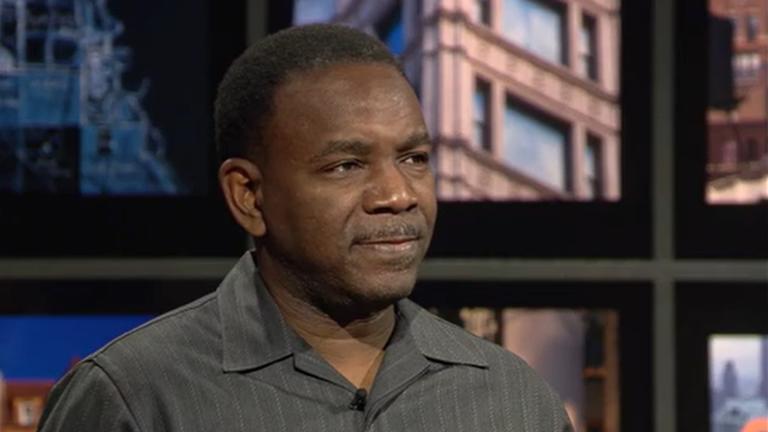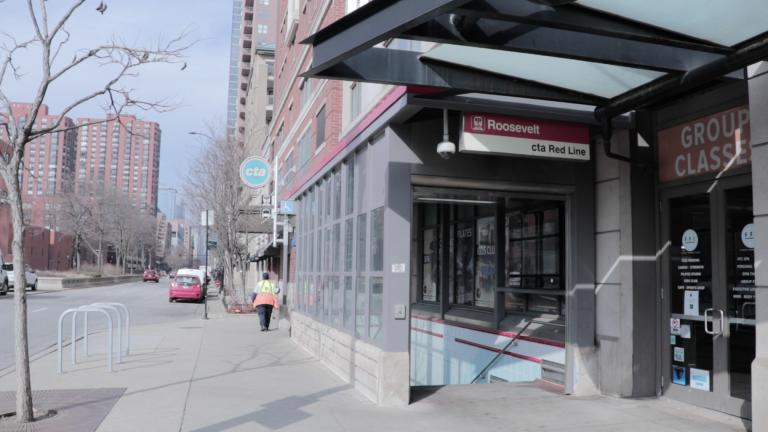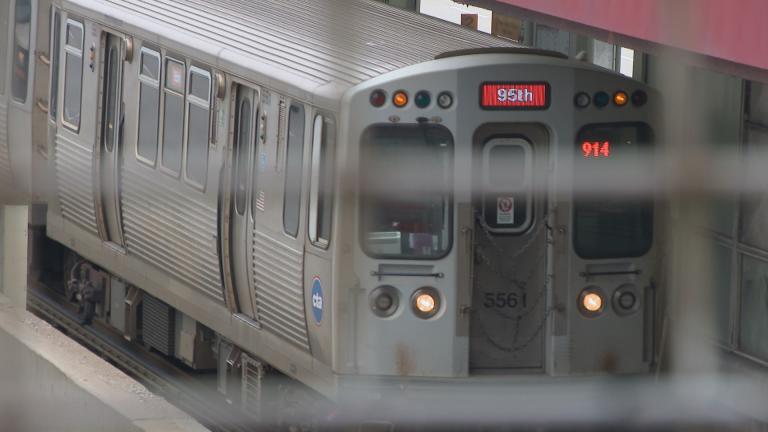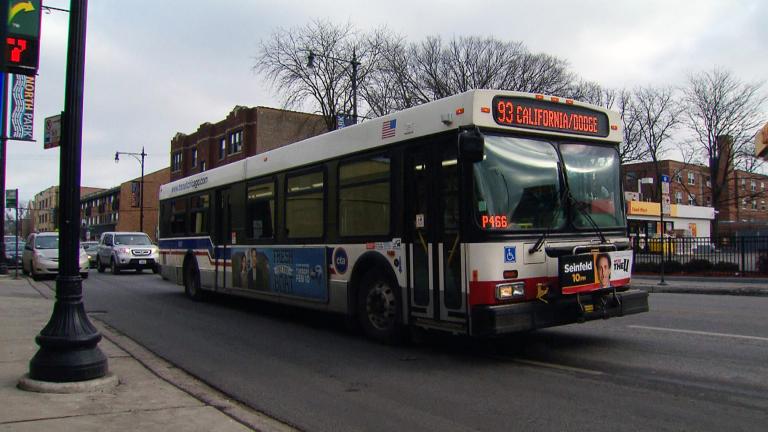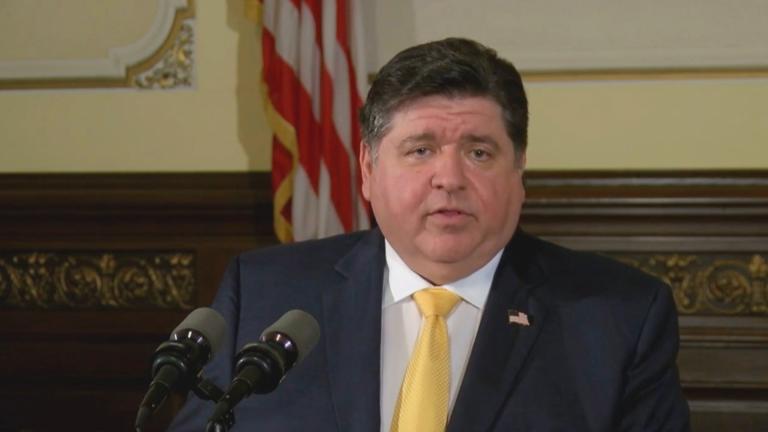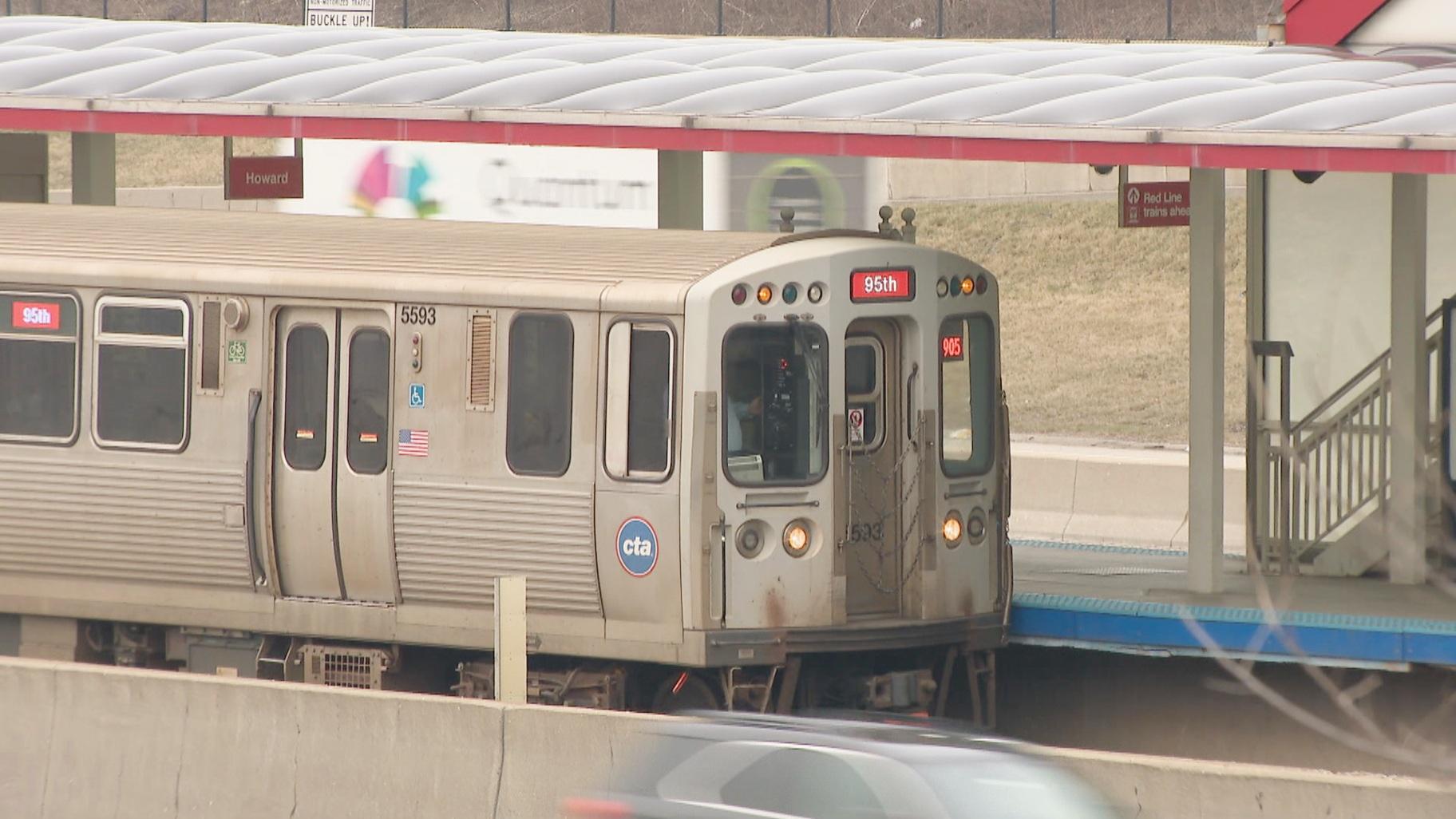 A southbound CTA Red Line train is pictured in a file photo. (WTTW News)
A southbound CTA Red Line train is pictured in a file photo. (WTTW News)
The Biden administration pledged $1.95 billion to help fund the extension of the CTA’s Red Line from 95th Street to the city’s southern border near 130th Street, agreeing to cover nearly half of the cost of the long-promised and long-delayed project in order to get it once and for all off the drawing board.
The federal funds will come from the $1 trillion bipartisan infrastructure bill signed into law by President Joe Biden in November 2021, Federal Transit Authority Administrator Nuria Fernandez said at a Friday morning news conference in Pullman to announce the awarding of the long-expected federal grant.
Mayor Brandon Johnson said the $3.6 billion plan to build 5.6 miles of new train tracks, as well as four stations, would “right a historic wrong” and provide a “critical connection that has been missing for half a century.”
“This is a great day for the South Side, and a great day for the city of Chicago,” Johnson said, alongside U.S. Sen. Dick Durbin and several members of Chicago’s congressional delegation.
Ald. Anthony Beale, whose 9th Ward would be connected to the Loop by the new train tracks, said it was long past time for city officials to make good on a promise first made by former Mayor Richard J. Daley 54 years ago.
“I think I am the only one on this stage that remembers that promise,” said Beale, who was 2 years old in 1969 when then-Mayor Richard J. Daley celebrated the opening of the 95th Street CTA train station and vowed to extend the tracks to 130th Street.
CTA President Dorval Carter said that promise would now become a reality.
“You have heard us talk about this project for decades,” Carter said. “But I’m here to tell you: The project is now happening.”
Carter served as the news conference’s master of ceremonies, a high-profile role for an agency head facing increasingly loud calls for his termination because the CTA has yet to return to pre-pandemic levels of reliability, cleanliness and safety.
Despite the celebratory tone struck by the officials, the project still faces a funding gap of about $400 million, even as it moves into the final phase of engineering and design.
The CTA had requested $2.37 billion, or 60% of the project cost, from the federal government. However, the Biden administration agreed to cover no more than half of the cost.
Chicago will match the federal grant with $959 million by funneling a portion of the increase in property tax revenues for the next 35 years from land in the 42nd, 3rd, 4th, 11th and 25th wards alongside the CTA train tracks — even though the extension of the train line would be miles away from any of those wards.
Former Mayor Lori Lightfoot championed the creation of that funding mechanism, known as a Transit Tax Increment Financing District, pushing it through the City Council in December, two months before losing her bid for a second term in office.
Chicago officials have said extension will benefit the entire city — not just the Far South Side — by allowing people to get to work in the Loop 30 minutes faster while reducing carbon emissions from cars.
The project would be the largest in the history of the CTA, and would create 6,000 jobs — earning the support of the politically powerful Chicago Federation of Labor.
The new tax-increment financing district is Chicago’s second Transit Tax Increment Financing District. The first Transit TIF was created in 2017 to fund the reconstruction of the Red, Purple and Brown lines on the North Side with little controversy. That work is underway now.
The city’s use of TIF districts has fueled a perennial argument over whether the districts, which capture all growth in the property tax base in a designated area for 23 years, actually spur redevelopment and eradicate blight or serve to exacerbate growing inequality in Chicago. The proposed TIF to fund the extension of the Red Line would not reduce funding to Chicago Public Schools.
Typically, the funds generated by TIF must be used in the same area of the city that the taxes were generated. But the TIF set to fund the Red Line extension would use the growth concentrated downtown and south of the Loop to fund the train line extension on the Far South Side, where property tax revenue has been stagnant or declining for many years — a reminder of the legacy left by modern segregation.
Track construction could begin as soon as late 2025, with the first trains running by 2029.
Contact Heather Cherone: @HeatherCherone | (773) 569-1863 | [email protected]

